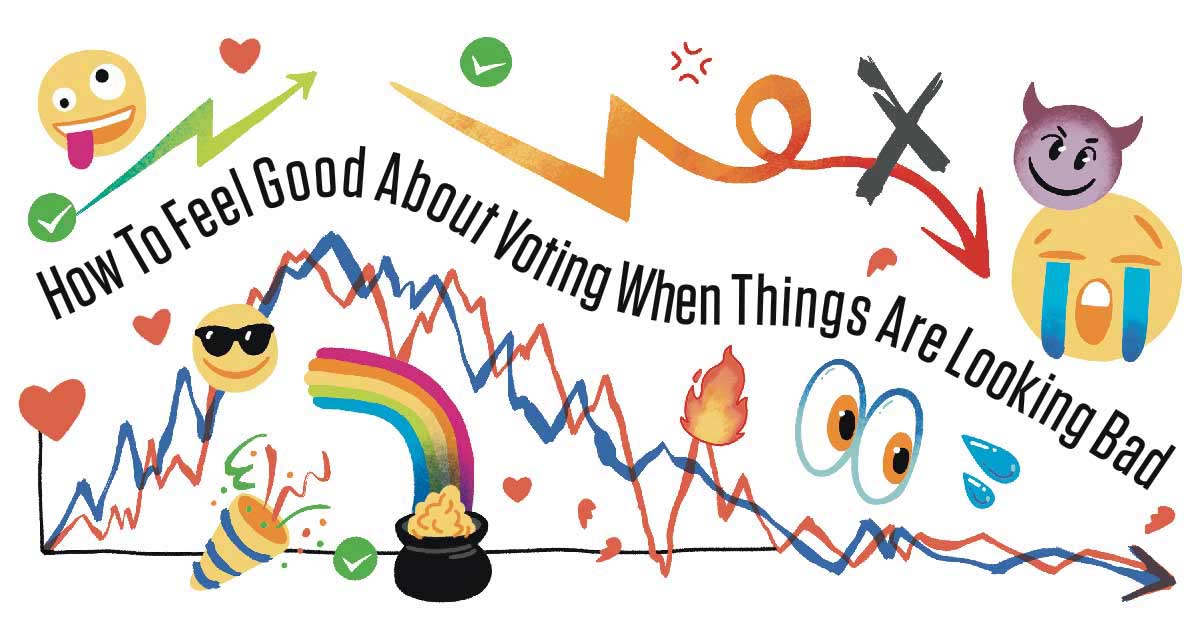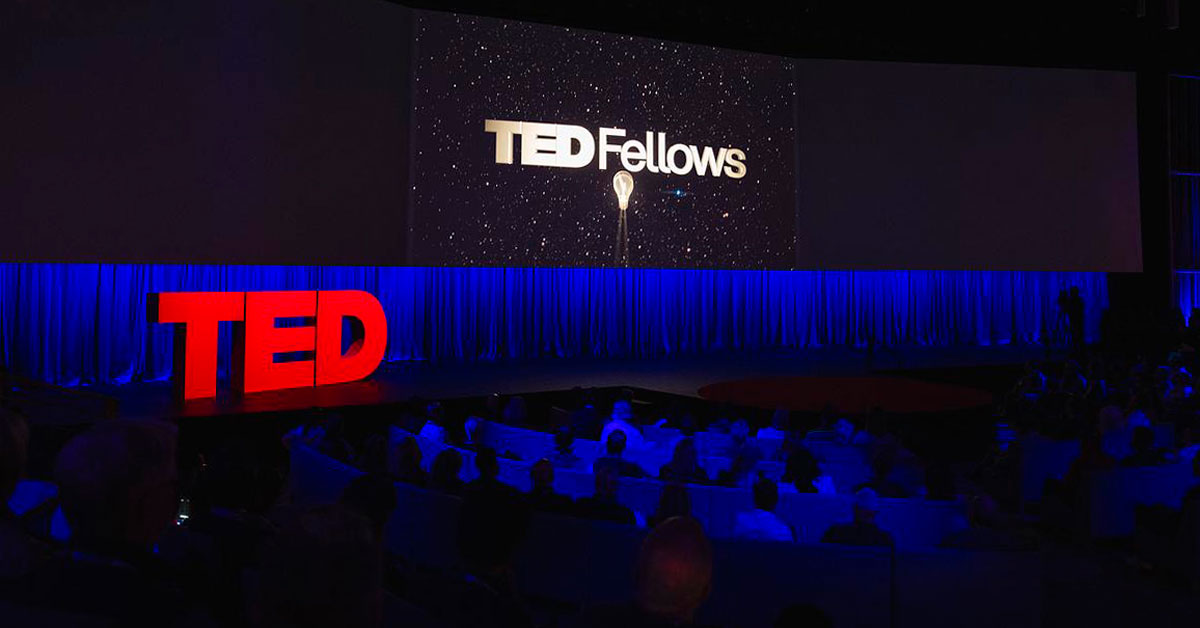It’s 2024, and we’re exhausted. People across the globe are being forced to move through the unaddressed and ongoing collective trauma of recent years, while still being expected to maintain an air of normalcy.
It’s like we all have these pie charts in our brains, uniquely divided into categories we are all asymmetrically familiar with: COVID-19, violent conflict, climate change, systemic injustice, financial collapse, our own personal relationships and adversities — you can surely draw your own diagram.
Despite — or in light of — what’s going on in the world, some days, the biggest chunk of that chart belongs to U.S. politics, the upcoming presidential election in particular. And it’s a slice of pie many of us are not exactly drooling over.
“There is clearly some disillusionment,” Bridgett King, an associate professor of political science at the University of Kentucky and a former voting rights researcher at the Brennan Center for Justice, told Good Good Good — citing dissatisfaction with U.S. presidential candidates and lower voter turnout at primary elections than previous years.
However, even if we’re disillusioned by our systems, unhappy with our candidates, or feel excluded from the voting process altogether, voting is still important, and it deserves at least a little bit of our brain space.
“Voting is an individual act that has collective consequences. Voting is an opportunity for individuals to come together as a collective and express their preferences for parties, candidates and policies,” King said.
“It is a tool that can be used to express satisfaction or dissatisfaction and communicate to those in power that both individuals and communities are paying attention to what our elected officials are — or are not — doing.”

King also noted that races for positions in local jurisdictions are particularly important, as one vote really could decide the outcome of an election.
Becky Bullard, a Texas-based organizer and creator of the platform Democrasexy, sees voting as a necessary function of democracy, even if it isn’t always exciting.
“Gloria Steinem has this quote that I love. She says, ‘Voting is not the most we can do, but it’s the least we can do,’” Bullard told Good Good Good.
“Voting … is harm reduction. We are operating within the system that we're in for now. And to disengage from it entirely means that the people who have the power who are harming us already are just going to stay there or level up.”
But what about the need to change that unjust and ineffective system?
With a highly polarized two-party approach, and historical disenfranchisement that makes it hard for many to even submit their ballots in the first place, does voting within this flawed system even make way for change and transformation?
“I would push back on the idea that one election cannot change how systems function,” King said. “Changes in partisan composition of state legislatures can dramatically reshape policy-making in a state.”
She continued: “Results of a school board election can reshape what education looks like in a district. There is clear evidence that each election does in fact matter in ways that directly affect how individuals interact with and experience government and institutions.”
In order to make those changes, we need to feel like they’re possible.

Bullard’s work is about taking the markedly unsexy world of democracy and making it so — what she calls “hiding the vegetables in the cupcake.” She wants people who feel zapped of energy to know that they can participate in so many fulfilling, timely ways beyond a single election.
She has done this by hosting support groups to talk about the way political systems cause harm and throwing themed activism dance parties that call for tarot readings and costumes.
“The beautiful thing that I have seen happen is people come to those meetups feeling so heavy, but we unburden ourselves, a little bit, of the things that are weighing on us,” Bullard said of the political events she’s hosted.
“Suddenly, we feel powerful. We’re like ‘oh, it’s not just me. A lot of us are feeling this way.’ It’s that honest, vulnerable community building that will help us be strong enough to move forward.”
So, for those of us who are exhausted from the constant, fractured view of our individual pie charts, the solution might just be to slice things up and share.
Civic engagement doesn’t work when we see it as a chore we take on by ourselves, but when we believe in the power of collective action.
“To me, it is not an option to completely disengage in the way the world currently is. I love conversations about breaking it all and rebuilding it, and I also believe that there is a future that we can work towards where everything works for everybody,” Bullard said.
“It won't be in my lifetime, but I believe it's possible. So I'm going to work toward it because I know that we can get there.”
A version of this article was originally published in The Civic Engagement Edition of the Goodnewspaper.
Get your own Goodnewspaper by becoming a good news subscriber today.



